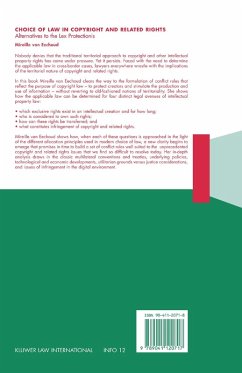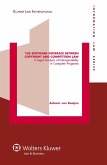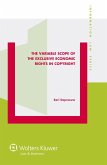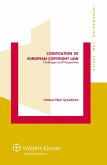Nobody denies that the traditional territorial approach to copyright and other intellectual property rights has come under pressure. Yet it persists. Faced with the need to determine the applicable law in cross-border cases, lawyers everywhere wrestle with the implications of the territorial nature of copyright and related rights.In this book Mireille van Eechoud clears the way to the formulation of conflict rules that reflect the purpose of copyright law - to protect creators and stimulate the production and use of information - without reverting to old-fashioned notions of territoriality. She shows how the applicable law can be determined for four distinct legal avenues of intellectual property law: which exclusive rights exist in an intellectual creation and for how long; who is considered to own such rights; how can these rights be transferred; and what constitutes infringement of copyright and related rights.Mireille van Eechoud shows how, when each of these questions is approached in the light of the different allocation principles used in modern choice of law, a new clarity begins to emerge that promises in time to build a set of conflict rules well suited to the unprecedented copyright and related rights issues that we find so difficult to resolve today. Her in-depth analysis draws in the classic multilateral conventions and treaties, underlying policies, technological and economic developments, utilitarian grounds versus iustice considerations, and issues of infringement in the digital environment.
Dieser Download kann aus rechtlichen Gründen nur mit Rechnungsadresse in A, B, BG, CY, CZ, D, DK, EW, E, FIN, F, GR, HR, H, IRL, I, LT, L, LR, M, NL, PL, P, R, S, SLO, SK ausgeliefert werden.









